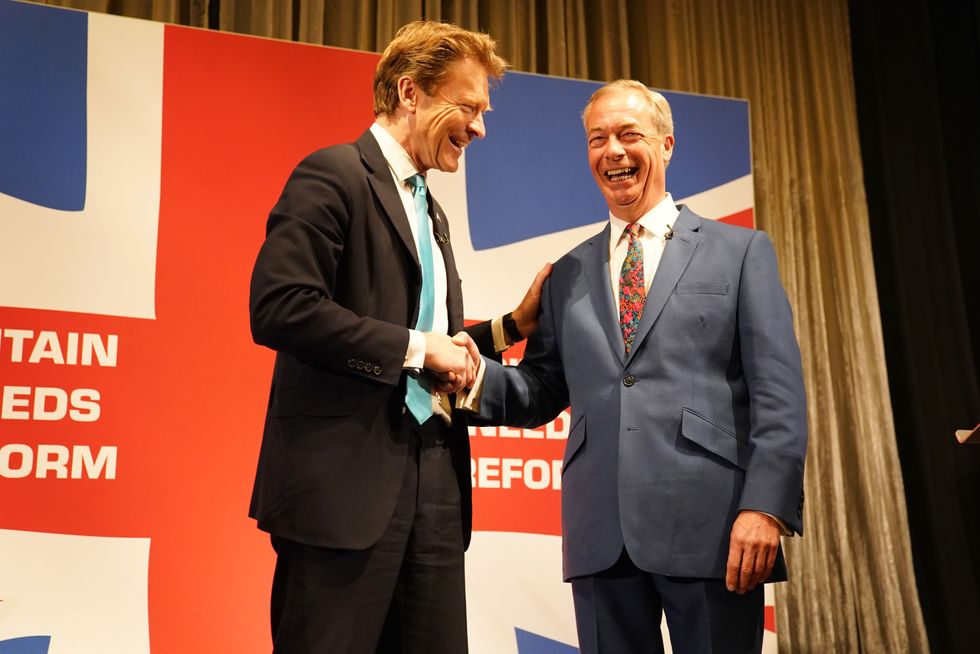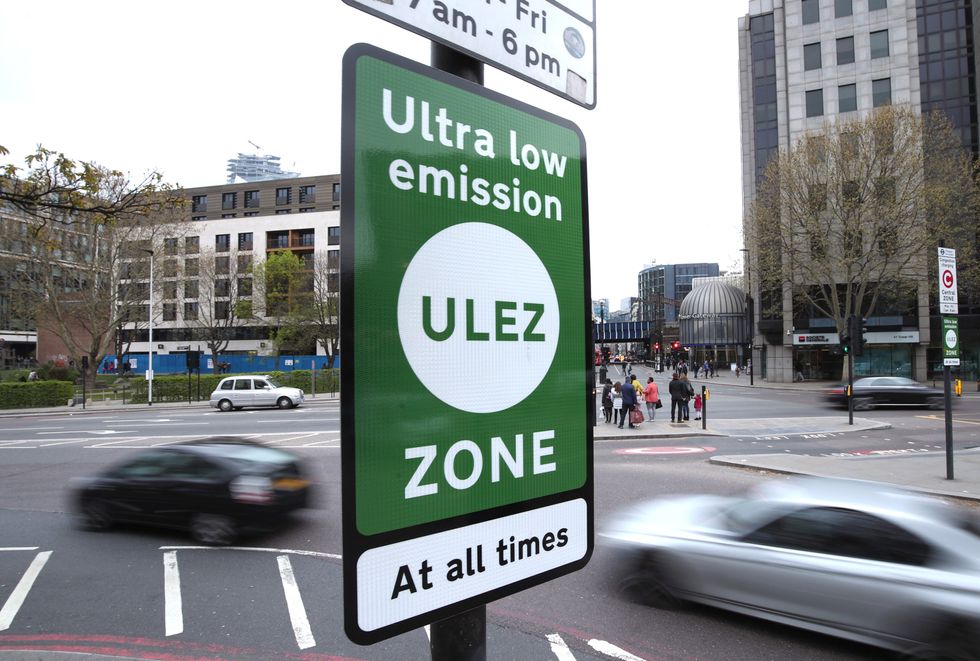Reform UK is expected to make a number of significant motoring promises
PA
New plans from Reform UK could see motorists around the UK benefit from cheaper costs
Don't Miss
Most Read
Trending on GB News
Reform UK has confirmed that it will make a number of major driving law changes to benefit Britain's motorists if they are elected in the upcoming General Election.
Speaking to GB News, a Reform UK insider clarified that the party would be sticking to its guns and supporting Britain's motorists through a host of new driving laws.
With the General Election just weeks away, political parties are trying their hardest to get voters to back their cause following several prominent manifesto launches this week.
Reform UK has consistently backed itself as the party acting on behalf of drivers and in their best interests, with a host of motoring pledges aiming to solidify that claim.
Do you have a story you'd like to share? Get in touch by emailingmotoring@gbnews.uk

Reform UK are climbing in opinion polls ahead of the July 4 General Election
PAA Reform UK insider confirmed to GB News that the party will pledge to repeal the 2035 ban on the sale of new petrol and diesel cars and vans, scrapping the net zero goal completely.
Prime Minister Rishi Sunak announced in September last year that the Government would be rolling back net zero pledges, including the ban on sales of new internal combustion engine vehicles.
He said there was a need for people to be able to choose when to switch to an electric vehicle, rather than having the Government tell them when to do it, resulting in the delay from 2030 to 2035.
The initial move was met with some concerns from major manufacturers and other political parties for jeopardising the economy and the net zero future of the UK.
However, Richard Tice, former leader and current Chairman of Reform UK, accused the PM of wasting billions of pounds worth of taxpayer money with net zero targets, calling it "net stupid".
Reform UK will instead allow the continued sale of petrol and diesel vehicles from 2035 and into the foreseeable future in major defiance of other countries around the world.
The surging political group is also planning to continue with its commitment to help drivers at the pumps following years of fluctuating costs and soaring prices for all fuel types.
Speaking in January at the party's battle plan event, Richard Tice said Reform UK would cut fuel duty by a staggering 20p in a bid to combat the expensive costs seen at the pumps in recent history.
As Chancellor, Rishi Sunak first introduced the 5p per litre fuel duty cut in 2022 in response to the Russian invasion of Ukraine and rising petrol and diesel prices, with the freeze being extended by Jeremy Hunt in 2023 and again in March of this year.
However, Reform UK have pledged to go much further to protect motorists from being hammered at the pumps. With a 20p cut, the cost of fuel duty would drop to 37.95p or 32.95p per litre, depending on whether they cut it by 20p from the current reduced rate or the original level.
Petrol prices continue to stagnate, while the cost of diesel at filling stations is the most expensive in Europe, prompting Reform UK to step in and protect motorists, with Tice saying earlier this year that it would make a "huge difference" to individuals and small businesses.
The Reform UK insider also outlined plans for the party to crack down on the spread of emissions-based charging areas around the country, in a further climbdown of net zero and environmental policies.
LATEST DEVELOPMENTS:
- All petrol and diesel vehicles to be banned from driving on roads in 2035 under radical Green Party pledge
- Britons urged to make use of Sainsbury's Nectar card changes to help drivers 'reap the benefits' of points
- Car insurance prices to plummet under new motoring plans - 'Labour is the only party truly on the side of drivers'

Reform UK has been critical of Clean Air Zones and the Ulez
PAThis includes London's Ultra Low Emission Zone, the numerous Clean Air Zones around England and the recently launched Low Emission Zones in the Scottish cities of Aberdeen, Dundee, Edinburgh and Glasgow.
There has been some criticism of the legally mandated zones, with many claiming that they do not have enough of an impact on harmful emissions to warrant the charges being levied on drivers.
In many cases, drivers are charged at least £10 a day, with fines and additional charges potentially resulting in motorists paying almost £1,000 for using non-compliant petrol and diesel cars.








